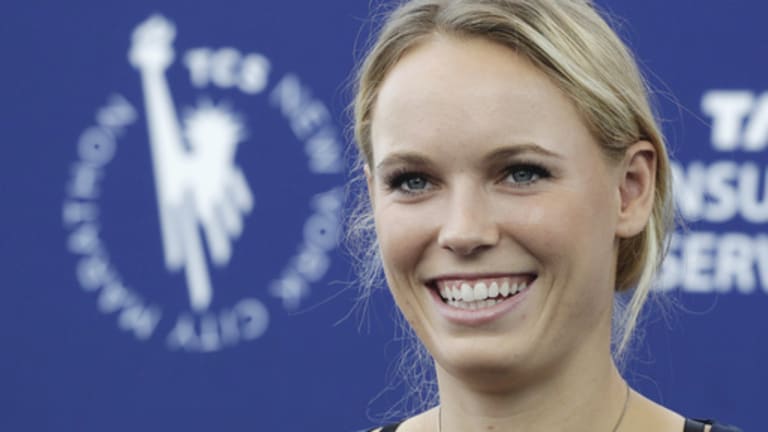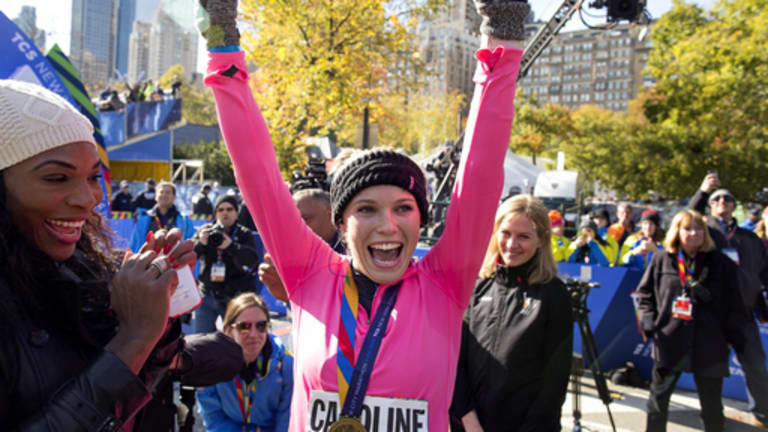Caroline Wozniacki freely admitted that she had done “everything you’re not supposed to do before a marathon,” a range of transgressions that began with having run no more than 13 miles in any of her training sessions to staying out until 4 a.m. at a Halloween party three nights before to attending a New York Rangers hockey game, foregoing dinner in the process, on the night before the great race in New York City.
It makes you shudder to think what kind of time Wozniacki might have logged if she had been a bit more scrupulous about her approach. As it was, Wozniacki finished the marathon in three hours and 26 minutes, a spectacular accomplishment under the circumstances.
Is this the same Caroline Wozniacki who stands eight inches taller and weighs 46 pounds more than the winner, Kenyan Mary Keitany, who weighs just 92 pounds and at 5’2” is well-built to run distances? The same Wozniacki who had spent the previous week in Singapore, battling her fellow tour elites in the WTA Finals? The same young woman who was thought to be heartbroken and adrift after her busted romance and a slide to No. 18 in the world earlier this year?
Wozniacki is famous for having finished as the year-end No. 1 in the WTA rankings for two years in succession (2010 and ‘11) without having won a Grand Slam title. She’s the only player ever to do so. Some have questioned her make-up as a competitor, her toughness. Tennis is certainly a different sport from long-distance running, but the idea that Wozniacki lacks what is commonly called character and drive has been shattered as convincingly as the predictions of those pundits who insisted that in choosing to run a marathon while still functioning as a full-time player, Wozniacki was being not merely arrogant, but blind to reality.
“I love to prove people wrong,” Wozniacki said in a television interview not long after she was greeted at the finish line by her great pal, Serena Williams.
Let her gloat. She’s entitled.
This performance by Wozniacki was more than eye-opening—it was a spectacular testament to the athleticism of a young lady who, thus far, has not been able to win any of the four biggest events. There certainly are technical and probably mental reasons for that; running isn’t nearly as technique-intensive as tennis, and any player who knows gut from gutta percha can attest to the outsized role mental self-control, confidence, and stress-resistance plays in the game.
But when a tennis player can blow through the most storied of all annual marathons as if it were a Sunday morning jog, especially under the brutally windy conditions that marked the day, it says something about her grit. It also speaks volumes about the quality of the athletes playing women’s tennis today.

